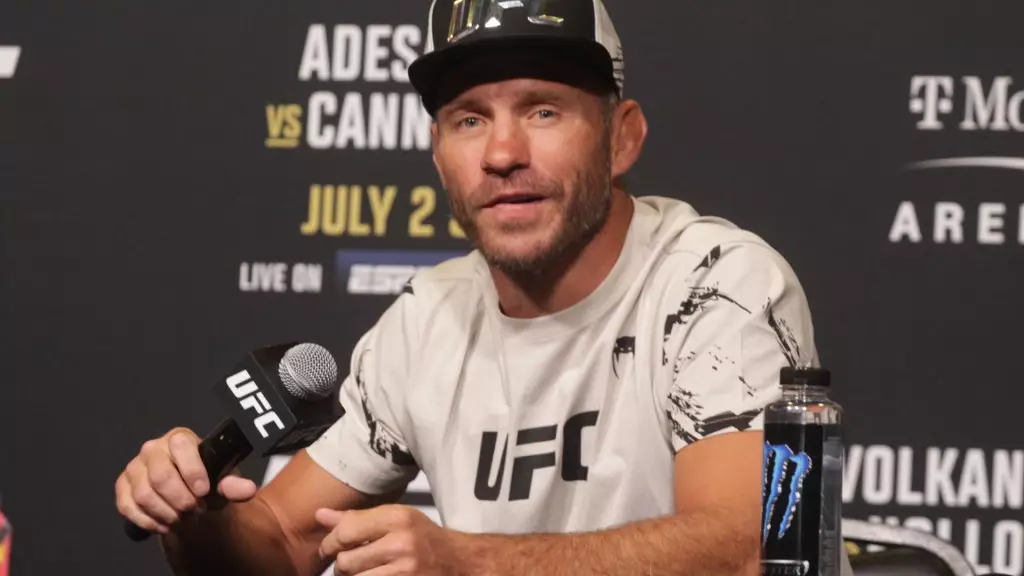The landscape of mixed martial arts (MMA) is ever-evolving, pushing the boundaries of athleticism and competition. However, the issue of performance-enhancing drugs (PEDs) continues to cast a long shadow over the sport, prompting fierce debates about integrity, fairness, and the health of athletes. Recent comments from former UFC champion Daniel Cormier about Donald Cerrone’s impending return to the octagon after admitting steroid use bring this conversation back into the spotlight. Cormier’s take on Cerrone’s candid admission highlights an ethical dilemma that transcends personal perspectives and dives deep into the realm of competitive integrity.
After announcing his retirement in July 2022, Cerrone, known for his exciting fighting style and extensive experience, revealed plans for a comeback, targeting two additional fights in the UFC. During his hiatus, Cerrone openly admitted to using testosterone replacement therapy (TRT) and various peptides—controversial choices that can significantly enhance performance. While some may argue that Cerrone’s acknowledgment of his PED use is a refreshing departure from the typical secrecy surrounding such matters, it raises important questions about accountability and the potential normalization of doping.
Cormier’s unease about Cerrone’s candid approach underscores a crucial point: just because an athlete is open about their PED use does not excuse the implications of their actions. The fact that Cerrone has been open about how he utilized these substances during his time away paints a troubling picture of a fighter who seems willing to exploit the gray areas of athletic regulations. Cormier rightly points out that this situation could set a troubling precedent for other fighters to follow suit, stepping away from rigorous drug testing to indulge in performance-enhancement, thereby skewing the competitive balance.
Cormier raises a significant concern regarding the integrity of MMA and the cyclical nature of drug testing. When fighters suspend their participation in rigorous drug testing while recovering from injuries, the potential for abusing the system grows. The gray area between recovery and enhancement becomes murky, leaving fans and officials to grapple with the ethics of such practices. While Cerrone may be legally allowed to return to competition after passing drug tests, it is legitimate to question whether he is truly competing on a level playing field, given his prior use of substances.
Moreover, the athlete’s mental and physical state is paramount in this discussion. Cormier’s assertion that Cerrone would need to rely on these enhancers to compete at an elite level reflects a systemic issue within the sport: the unrelenting pressure to be at the top, regardless of the means necessary to achieve that. This intense pressure not only fuels the temptation to use PEDs but also places an unwarranted burden on athletes’ well-being and integrity. Fighters like Cerrone, who have experienced recent defeats, may grapple with feelings of inadequacy, leading them to seek unfair advantages in an unforgiving environment.
The ramifications of this situation extend beyond individual fighters; they can reshape the landscape for aspiring athletes and the perception of MMA as a legitimate sport. Young fighters looking to make their mark may begin to question the merits of hard work and authentic training if veteran fighters openly embrace performance enhancement without facing severe consequences. Cormier’s concerns align with a broader plea for the UFC to implement stricter regulations and foster a culture where drug use is not tolerated, ensuring that talent, discipline, and sportsmanship reign supreme.
As MMA evolves, it is imperative for organizations, athletes, and fans to engage in discussions concerning ethical practices in competition. The conversation around Cerrone’s return should not just be about his ability to pass drug tests but rather the broader implications of his choices within the sport. With the future of MMA hanging in the balance, it becomes crucial to advocate for an environment where the integrity of competition is upheld, ensuring that the sport remains a true testament to human ability and perseverance.
Ultimately, the industry must grapple with its accountability and transparency concerning PEDs, using Cerrone’s high-profile case as a catalyst for necessary change in the world of MMA.

